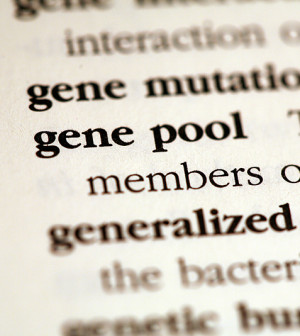- FDA Approves New Antibiotic Against UTIs
- New School Lunch Rules Target Added Sugars, Salt
- Dairy Cows Moved Across State Lines Must Now Be Tested for Bird Flu
- TikTok Riddled With Misleading Info on Health: Study
- Emulsifier Chemicals Are Everywhere in Foods. Could They Raise Diabetes Risk?
- Opioids During Pregnancy May Not Raise Psychiatric Risks for Offspring
- Could Heartburn Meds Raise Your Migraine Risk?
- Drug, Alcohol Abuse Goes Untreated in Many Ex-Prisoners
- Watchdog Group Says U.S. Food Recalls Rose Again Last Year
- Genes Could Mix With Pesticide Exposure to Raise Parkinson’s Risk
Most Americans Want Doctors’ Help With Gene Test Results: Study


THURSDAY, Nov. 14Genetic tests aimed at gauging a person’s risk for an array of health issues are now readily available, but a new survey finds that most people prefer the help of a physician in interpreting the results.
“Genetic risk percentages require interpretation and context,” study co-author Rene Almeling, a sociologist at Yale University, said in a university news release.
Almeling said experts have long had “concerns about companies that offer genetic tests directly to consumers. What we did that was new was to ask members of the public whether they thought this was a good idea.”
The study involved 2,100 people who were asked about direct-to-consumer genetic tests, among other things.
Almeling and co-author Shana Kushner Gadarian, of Syracuse University, found that the majority of Americans support federal spending on genetic research. They also found broad support for laws that prevent discrimination based on the results of a genetic test.
The research also found that 65 percent of Americans agree that doctors should explain genetic test results to their patients.
That’s in line with current recommendations from the American Medical Association and the American College of Medical Genetics, which both recommend that people undergo genetic testing under the guidance of their doctor. Physicians can take into account factors such as family history and environment when interpreting gene test results, according to these groups.
Given the overwhelming support for the involvement of doctors in interpreting the results of genetic testing, the researchers said their findings may prompt lawmakers to make doctor-patient consultations a requirement in the future.
“In the ongoing debates over policy issues in genetics, it’s important to keep in mind the views of those most affected by such debates,” Almeling said. “These results are useful for scientists designing studies, clinicians working with patients, federal agencies setting budget priorities and legislators designing regulations.”
The findings were published online recently in the journal Genetics in Medicine.
More information
The U.S. National Institutes of Health provides more information on genetic testing.
Source: HealthDay
Copyright © 2024 HealthDay. All rights reserved.










